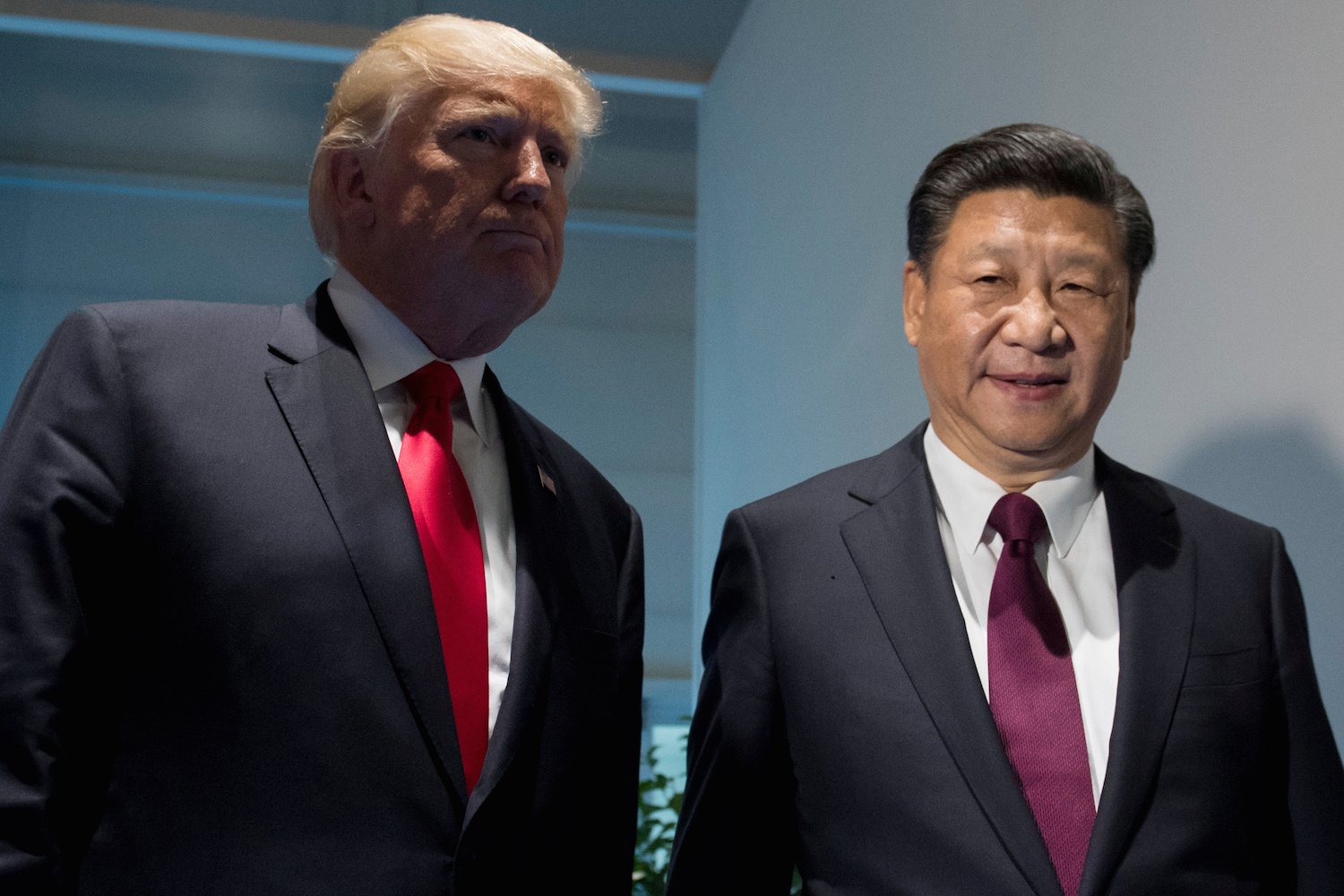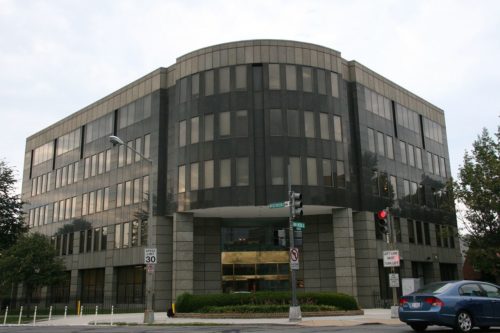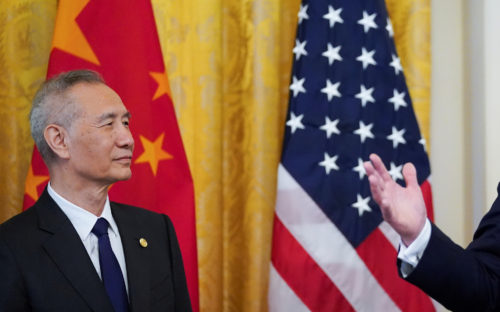Trade war, day 63: Chaos in D.C. deepens trenches even further

The public comment period for a $200 billion package of new tariffs on Chinese good is due to end soon, at midnight September 6. We will then enter the timeframe that Donald Trump is reportedly planning on implementing those tariffs: “as soon as [the] public-comment period concludes.”
We still expect those tariffs to be implemented in the near future, but since a week ago when that timeline was first reported the White House has been in crisis mode, so perhaps the implementation will be delayed (Reuters indicates that “the timing is uncertain”). Along with a soon-to-be-released book documenting chaos in the White House by veteran journalist Bob Woodward, an unprecedented anonymous op-ed by a “senior official in the Trump administration” (paywall) in the New York Times yesterday is confirming what many have said about Trump for years:
Anyone who works with him knows he is not moored to any discernible first principles that guide his decision making…
‘There is literally no telling whether he might change his mind from one minute to the next,’ a top official complained to me recently, exasperated by an Oval Office meeting at which the president flip-flopped on a major policy decision he’d made only a week earlier.
Noted China watcher Bill Bishop asks (paywall) — and the answer is almost certainly “yes” — “Will Xi take these revelations as further evidence that there is no way to trust any trade deal Trump may agree to, and so there is little point in offering any significant concessions to try to forestall the escalating trade war?”
It may also deepen Trump’s resolve to double down on a hardline stance on trade with China, as he will soon travel the country to drum up support for fellow Republicans in the midterm congressional elections, to be held exactly two months from now on November 6.
- “The president views the tariffs as a winning political issue heading into the midterms, despite protests from The Wall Street Journal editorial board, business groups and so-called elites or donors,” Politico reported at the start of the trade war in early July, and there is no indication that Trump’s thinking has changed since then.
- “A new attitude toward China is rapidly taking shape,” Jake Werner wrote (paywall) in Foreign Policy a month ago, documenting how bipartisan support for hardline moves against China on trade have increased, not decreased, since the start of the trade war.
- It’s notable that “trade is one of the rare ‘crossover issues’ that appeals as much to Bernie Sanders’ Democrats as it does to the president’s core political base,” as Financial Times Beijing bureau chief Tom Mitchell and others have reminded us of recently.
- This means that a hard trade stance will likely outlast the congressional midterms in two months, no matter the outcome.
- The next round of tariffs
As next round of U.S. tariffs on China looms, both sides dig in / Reuters
“China seems unable or unwilling to announce major liberalizations that could be termed ‘confidence building measures’ or ‘down payments’ on expected near-term reforms,” said Craig Allen, president of the Washington-based U.S.-China Business Council.
China to take necessary countermeasures depending on U.S. tariff action: MOC / Xinhua
“If the U.S. side ignores the opposition of the majority of enterprises participating in the public comment, and goes its own way to impose additional tariffs on more Chinese imports, China will have to take necessary countermeasures,” said Commerce Ministry spokesperson Gao Feng. - Domestic innovation factor
China must innovate if it wants to be a world leader in science and technology, government steering group says / SCMP
“Chinese Vice-Premier Liu He, the country’s top negotiator in the trade war with the US, has called for a ‘comprehensive assessment’ of global trends as Beijing looks to prepare a new long-term programme for scientific and technological development.”
China still dependent on S. Korean memory chips / Yonhap
“China remained dependent on South Korea in 2017 for more than half of its memory chip demand, despite Beijing’s latest efforts to foster its chipmakers on a big scale, data showed Thursday.”
China’s brain drain to the US is ending, thanks to higher salaries and Donald Trump / SCMP
“China appears to have successfully reversed a ‘brain drain’ among top researchers who have gone overseas in droves for years, mostly to the United States. Now, many of the country’s best and brightest scientists are staying put, as higher pay packages and changing perceptions of domestic scientists increase the appeal of local jobs.” - Other news
Bloomberg forum in Beijing for business elites is put off, Chinese hosts confirm / NYT (paywall)
“Bloomberg moved the forum to Singapore because of fallout from the trade war between the United States and China, people familiar with the planning for the forum told The New York Times last week.”
“In a statement released on Wednesday, the China Center for International Economic Exchanges said the forum had been changed because of scheduling conflicts with “a number of large-scale events.”
“The two organizations said they planned to hold the second iteration of the forum in Beijing in November 2019.”
“Yet, given the high level of tensions between the United States and China, there is a chance Chinese officials could decide later to cancel next year’s event.
Exxon moves ahead on China projects as trade tensions simmer / Bloomberg (paywall)
“The Irving, Texas-based company signed cooperation framework agreements with the Guangdong provincial government, it said in a statement Thursday, following a preliminary deal in November. The chemical complex, which is expected to start in 2023, remains subject to a final investment decision, it said, without providing cost details.”
Previously in The China Project’s trade war coverage:
https://thechinaproject.com/2018/09/05/trade-war-day-62-both-sides-dig-in-for-long-conflict/






